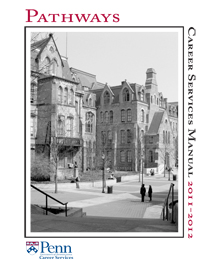by Todd Rothman

Students often ask me the same thing in various iterations about the law school admissions process during this time of year. Sometimes it comes in the form of a reluctant acknowledgment, sometimes in the form of a series of rapid-fire questions, and sometimes in the form of a panicked confession. But in the end, it usually sounds something like this – “I have no idea what I should be doing right now.” So, since most 2011-2012 law school applications will be officially released to LSAC in the next week or two, here is an attempt to address that very dilemma… as well as what you need *not* be doing right now (which is often equally important).
The To-Do-Now List:
1. Open a Credential Assembly Service (CAS) Account with LSAC. The CAS account is an essential part of the law school application process, as LSAC helps you to organize (or “assemble”) all of your application materials (or “credentials”) for the law schools to which you will be applying. The bad news is that it comes with a $124 registration cost that, in our electronic age, cannot be avoided, as this is now a mandatory part of applying to law school in the United States and Canada. The good news is that the CAS does an excellent job in coordinating and simplifying the application process for applicants *and* your registration is actually valid for five years. More information about the CAS can be found on the LSAC website: http://www.lsac.org/jd/apply/cas.asp
2. Think About and Draft Your Personal Statement. Although the official law school applications with their instructions and prompts have not yet been released, most law schools will ultimately provide such open-ended questions in the personal statement section that applicants rarely find the prompts to be particularly helpful in drafting their personal statement. I always encourage applicants to visit the Career Services Pre-Law Website for some basic guidelines before the drafting begins (http://www.vpul.upenn.edu/careerservices/gradprof/law/guide.html#essay). The most important advice I can offer, though, is that your personal statement is an opportunity to showcase your strengths, personality traits, passions, and interests in a way that “shows” rather than “tells” the reader about yourself. This is a chance to relate some personally meaningful anecdotes in your experiences so far that will help you convey those strengths, personality traits, passions, and interests in an interesting and engaging way. Think of it as a substitute for an admissions interview – if you had fifteen minutes with an Admissions Committee, what about yourself (besides what is already included on your application) would you want them to know?
3. Update/Reformat Your Resume. Law schools either require or strongly recommend that you submit a full resume along with your application, and this is another terrific opportunity to enumerate and articulately describe all of your major activities and accomplishments. Unlike a resume that you might prepare for the job search, a law school resume has some important distinctions – (a) it can be more than one page, (b) it should devote as much attention and detail to your campus/extracurricular activities as your professional/internship activities, and (c) it should not have an “objective,” nor do you need to highlight your typing speed (even if it is 100 words per minute) nor your computer/technical skills like your “Working Familiarity With PowerPoint.” Consider the audience here. You can also refer to the sample law school resume on our Pre-Law Website as a guide: http://www.vpul.upenn.edu/careerservices/gradprof/law/LawResume.pdf
4. Contact Potential Letter of Recommendation Writers. Most law schools require two letters of recommendation and most, if not all, law schools prefer that these letters be academic in nature. After all, this is an academic program to which you are applying. Professional and/or extracurricular letters of recommendation might also be helpful and appropriate in light of your experiences, provided your involvement was indeed substantive in nature. With that in mind, you should identify at least three possible letter of recommendation writers (you never know if someone is on sabbatical/out of the country/doesn’t remember you as well as you think they do) and begin to contact them to see if they can write you a strong letter of recommendation. I strongly recommend giving your recommenders at least a month for turn-around time, so if you haven’t already begun that process, you should certainly do so now.
5. Send Your Official Transcripts to LSAC. You will need to request official transcripts from all of the undergraduate and graduate institutions you attended, including any institution at which you took a college-level course. And the sooner you start that process, the better. Yes, that means that your advanced high school course in Accounting that was affiliated with your local community college or university. Yes, that means the summer college course in Sculpture that you just took for fun during your summer in New York. Any academic situation that generated a college-level transcript for you, even if those credits never transferred to Penn, must have an official transcript sent to LSAC. More information about transcripts for law school can be found on the LSAC website: http://www.lsac.org/JD/Apply/cas-requesting-transcripts.asp
6. Research and Formulate Your List of Law Schools. As with any admissions process, your list should be a comprehensive, realistic compilation of schools that represent a range of schools in terms of selectivity. This is similar to when you applied to college, as there should be a critical mass of law schools that represent “safety schools,” “in-range/target schools,” and (everyone’s favorite) “reach schools.” Unless you are very strongly tied to one narrow region of the country (for example, if you only want to attend law school in the Pacific Northwest), I recommend applying to between 10-15 schools, provided that the schools represent the aforementioned range of schools in terms of selectivity. So if your list of 10-15 schools is a photocopy of the Top 15 Law Schools in US News & World Report’s most recent issue, we have a problem. The choice of where to apply to law school is a highly subjective one, so a good deal of research is highly recommended; a good place to start is the LSAC website (http://www.lsac.org/JD/Choose/customize-your-law-school-search.asp). Ultimately, your list should represent a synthesis of Where Do I Want To Go (in thinking about geography, reputation, class size, employment prospects, particular areas of interest) and Where Do I Stand A Good Shot Of Getting In (where you should be comparing your quantitative information… undergraduate GPA and LSAT… with the published 25th/75th percentile and median information for the schools on your list).
Since many applicants find some (or all) of this to be overwhelming and confusing, that leads us to the last item of this To-Do List…
7. Get To Know Your (Friendly and Knowledgeable) Pre-Law Advisors. And our names are Todd Rothman (that’s me) and my colleague, Anne Reedstrom. We are available through 30-minute individual advising appointments (in-person or by telephone), email advising, our weekly Pre-Law Walk-In Hours (Thursdays from 2:00-4:00pm in the Career Services Office), our various seminars and programs throughout the semester, and through our Pre-Law Listserv (here is how you sign up: http://www.vpul.upenn.edu/careerservices/gradprof/connect.html#email). We are here to help you with any and all of your questions about this process, so feel free to call our office (215-898-1789) to make an appointment with one of us or send one of us an email with your questions. More information about our services can be found on our website: http://www.vpul.upenn.edu/careerservices/gradprof/connect.html#services
The No-Need-To-Do-Now List:
1. Visit Every Law School on Your List. Unlike applying to college, law schools do not weigh whether or not you made an actual campus visit to their school as a “plus factor” in their admissions process. In fact, while I’m sure that they would happily have you on campus to check things out, it will not factor at all into their decision-making process. I strongly recommend visiting some of the law schools to which you are admitted later in the process (think Admitted Student Programs in the Spring) as you finalize your decisions, but there is no need for a “law school tour” in the summer or fall. I promise.
2. Decide Where You’re Going to Law School. Otherwise known as not putting the cart before the horse. This is a long, hurry-up-and-wait process and, although you may have a first choice or a favorite “dream school” at this point, all you need to focus on in the next few months is applying to a range of appealing schools and putting your best foot forward as an applicant. What happens over the course of the admissions cycle will – for better or for worse – help to inform you about your options and, as your decisions start rolling in usually beginning in December, you can begin to think through the actual options in front of you.
3. Panic. Applying to law school – much like law school itself – requires endurance, stamina, patience, and the ability to handle stress in the face of challenges. Though it might feel overwhelming at times, please know that being accepted to law school is an entirely attainable prospect, provided that you stay on top of deadlines, set realistic goals, and keep things in perspective. So, do your research and start working your way through your own personal To-Do List with diligence, attention to detail, and enthusiasm about what lies out in front of you. And if you don’t have a To-Do List yet, feel free to use this one for now.










